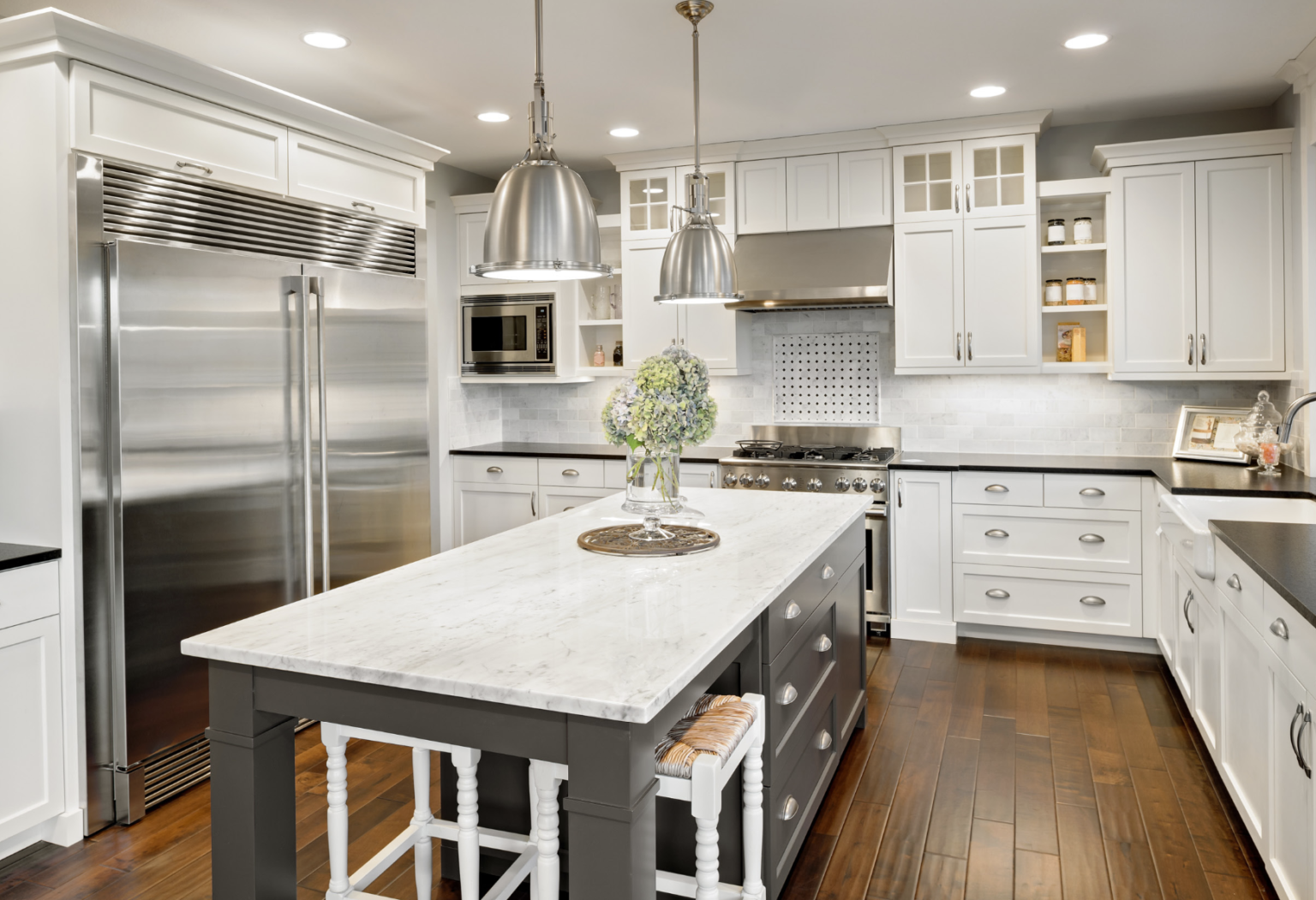MARBLE
When it comes to aesthetic brilliance, you’re unlikely to beat marble, as the richly textured, usually white or light-colored rock, is decorated with stunning natural veins, which highlight the depth of the stone.
However, there is no beauty without pain and – likewise – marble is one of the more impractical materials you could choose to build your kitchen countertops. This is because marble is a naturally soft rock, and is, consequently, susceptible to scratches and chips. In addition, marble countertops need to be sealed annually – in order to protect against potential stains.
GRANITE
As another attractive natural rock countertop material, there is a huge variety of granite to choose from, coming in an array of textures and colors due to its unique mineral configuration. Namely, granite is typically made up of a combination of hornblende, quartz, mica, and feldspar, among other minerals, which account for the infinite styles available.
More than this, granite is a practical choice, being scratch and chip resistant, and less porous than marble, meaning fewer seals required to keep the rock stain-free. On top of this, granite is also inexpensive compared to other natural rocks, such as marble and quartz.
QUARTZ
Natural quartz is the strongest component present in granite, meaning that – out of all the possible countertop choices – quartz is the most scratch, chip and damage resistant.
Moreover, many quartz countertop brands – such as Hanstone quartz – combine the natural quartz with a small percentage of synthetic material in order to combat the innate porousness of natural rock. This means that most quartz countertops don’t ever need to be sealed in order to retain a stain-free appearance, while simultaneously repelling – and not retaining – bacteria.
As a result of quartz’s unbeatable durability – without any compromise on appearance – and due to the fact that it’s incredibly low maintenance (and will never need repairing) this material is slightly pricier than granite, though still less costly than marble.
LAMINATE
Laminate countertops are made from layers of plastic that are bonded to particleboard or kraft paper to create a strong, solid countertop surface. Due to its lightweight nature, as opposed to heavy stone countertops, laminate can easily be installed.
In addition, laminate countertops are a low-maintenance alternative to pricey stone and solid surface countertops because they are available in many styles that mimic expensive surfaces such as granite or marble. However, laminate is not resistant to heat and it will chip and scratch under pressure.
